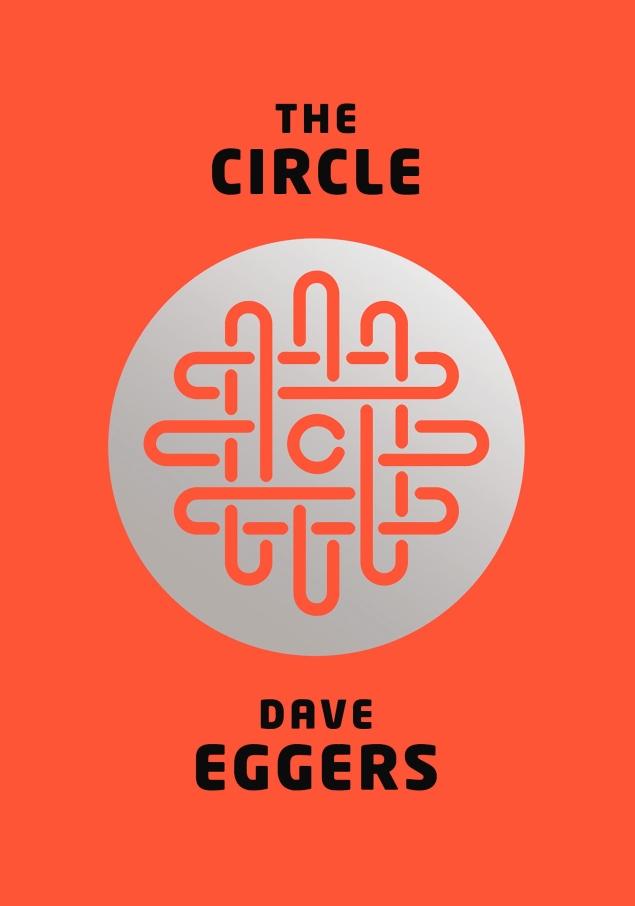In the realm of contemporary literature, few narratives have sparked as much debate and contemplation as “The Circle.” This novel, penned by the astute Dave Eggers, stretches the boundaries of conventional storytelling. It entices readers to delve deep into a world where technology intertwines with the very essence of humanity. The allure of the digital age, the intricacies of privacy, and the tug-of-war between personal freedom and societal oversight create a tapestry that is as engaging as it is thought-provoking.
At its core, “The Circle” presents a dystopian vision that resonates profoundly with our current reality. It follows the journey of Mae Holland, a naive yet ambitious young woman who lands a coveted job at a tech behemoth known as The Circle. This company is an amalgamation of social media, data analytics, and an overarching desire for connectivity. What begins as an exhilarating venture quickly transforms into an unsettling odyssey. The narrative raises pressing questions: How far are we willing to go in our quest for belonging? What sacrifices do we make in the name of transparency?
One of the most compelling aspects of this novel is its capacity to illuminate the subtle erosion of privacy. Eggers masterfully constructs a world where personal information is no longer sacred. The fervor with which The Circle advocates for transparency is seductive. The promise that “all that happens must be known” tantalizes Mae and her colleagues, invoking the notion of societal harmony through shared knowledge. However, as the plot unfolds, the ominous implications of such a philosophy become irrefutable—the boundary between private and public life blurs inexorably.
What sets “The Circle” apart from other cautionary tales is its ability to evoke a visceral emotional response. Readers are not mere spectators; they become complicit in Mae’s choices. As she navigates the euphoric highs of her new reality, her growing detachment from friends and family becomes painfully palpable. Eggers deftly illustrates how the allure of technology can lead to alienation rather than camaraderie. This dynamic serves as a mirror for our times; we are constantly bombarded with notifications, yet often feel lonelier than ever.
The character development throughout the novel is as intricate as the themes it explores. Mae’s transformation from an idealistic newcomer to a fervent advocate for The Circle’s ideologies is alarming. Eggers meticulously charts her evolution, drawing readers into the moral quandaries she faces. Mae’s interactions with other pivotal characters, such as her childhood friend Annie and the enigmatic Ty, further enrich the narrative. Annie embodies the zealous belief in The Circle’s philosophy, while Ty represents the counterargument—a silent dissent against the tide of absolute transparency.
Importantly, “The Circle” does not shy away from depicting the consequences of relentless digital engagement. It poses an existential query regarding identity. In a world where online personas often overshadow reality, who are we without our digital avatars? As Mae becomes increasingly engrossed in The Circle’s ethos, her authentic self begins to vanish, replaced by an insatiable thirst for affirmation. This transformation starkly juxtaposes her initial excitement with a burgeoning sense of despair. The narrative compels readers to contemplate: At what point does our quest for acceptance compromise our individuality?
The pacing of the novel is particularly noteworthy. Eggers expertly crafts a sense of urgency that propels the narrative forward. Readers will find themselves racing through the pages, desperate to uncover the next revelation and the repercussions that follow. The tension is palpable, especially as Mae’s unwavering faith in The Circle is met with disconcerting truths—the vultures of corporate greed and the inexorable pull of surveillance capitalism loom ever closer.
Another distinctive facet of Eggers’ writing is his psychological insight. He delves deep into the human psyche, revealing the fears and insecurities that accompany technological advancement. Readers are invited to contemplate the ramifications of their digital footprint—an elegant reminder of the moral responsibilities that accompany the privileges we often take for granted. The characters in “The Circle” are not simply archetypes; they are embodiments of the complexities inherent in our relationship with technology.
As the narrative progresses towards its climax, Mae finds herself at a crossroads. The choices she faces reflect the broader ideological battle between progress and ethics. The allure of a connected world wrestles with the dangers of totalitarian surveillance. Eggers poignantly illustrates how the quest for communal understanding can spiral into an Orwellian nightmare. The pulse of the narrative quickens, culminating in a conclusion that is both haunting and thought-provoking—a testament to the enduring relevance of Eggers’ exploration of human connectivity in a digital age.
In essence, “The Circle” is more than just a novel; it is a harbinger of the complexities that await society as we continue to intertwine our lives with technology. Eggers compels readers to confront their unease, to grapple with the possibility of losing oneself in the pursuit of collective knowledge and acceptance. The book’s evocative themes resonate powerfully, prompting crucial dialogues about the future of our digital identities. In a world where everything seems intertwined, “The Circle” beckons us to ponder: how do we navigate the fine line between connection and concession?
